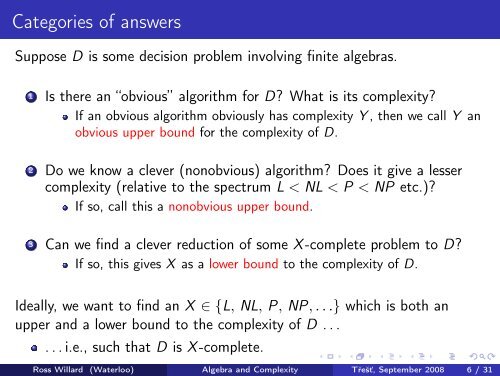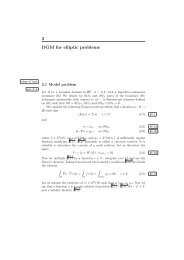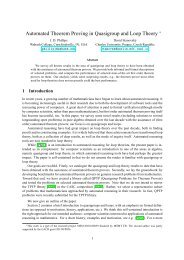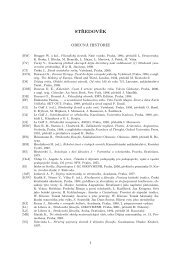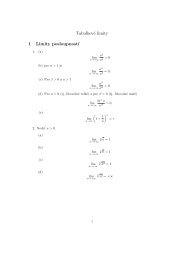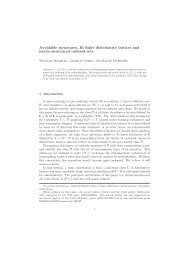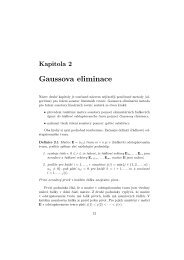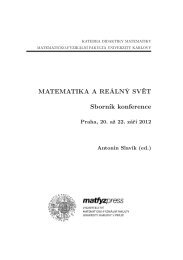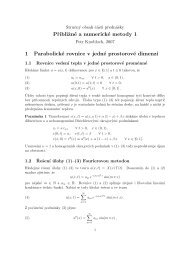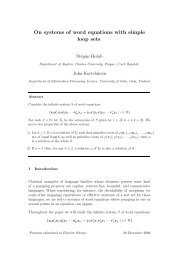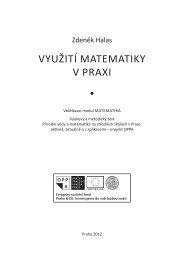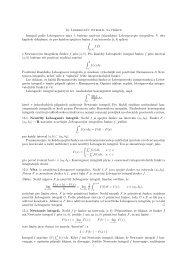Universal Algebra and Computational Complexity Lecture 3
Universal Algebra and Computational Complexity Lecture 3
Universal Algebra and Computational Complexity Lecture 3
Create successful ePaper yourself
Turn your PDF publications into a flip-book with our unique Google optimized e-Paper software.
Categories of answers<br />
Suppose D is some decision problem involving finite algebras.<br />
1 Is there an “obvious” algorithm for D? What is its complexity?<br />
If an obvious algorithm obviously has complexity Y , then we call Y an<br />
obvious upper bound for the complexity of D.<br />
2 Do we know a clever (nonobvious) algorithm? Does it give a lesser<br />
complexity (relative to the spectrum L < NL < P < NP etc.)?<br />
If so, call this a nonobvious upper bound.<br />
3 Can we find a clever reduction of some X -complete problem to D?<br />
If so, this gives X as a lower bound to the complexity of D.<br />
Ideally, we want to find an X ∈ {L, NL, P, NP, . . .} which is both an<br />
upper <strong>and</strong> a lower bound to the complexity of D . . .<br />
. . . i.e., such that D is X -complete.<br />
Ross Willard (Waterloo) <strong>Algebra</strong> <strong>and</strong> <strong>Complexity</strong> Třešť, September 2008 6 / 31


